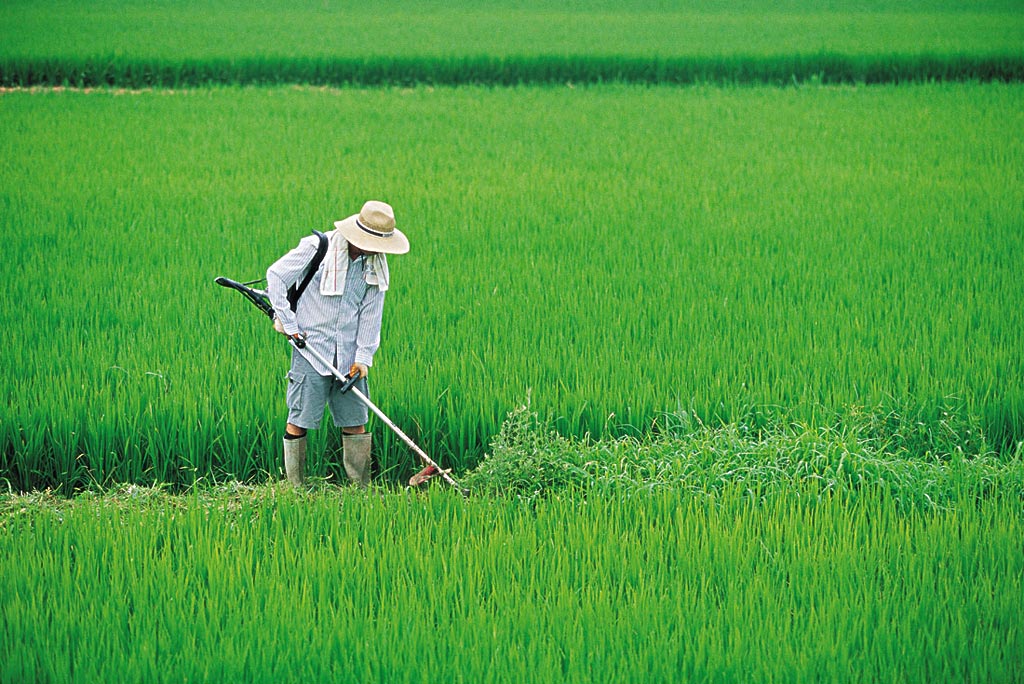In recent years, the MOA has kept
strengthening the pesticide safety monitoring, and planning to issue policies
to support the normal risk monitoring and re-evaluation on pesticides jointly
with the opportunity of the issuing of the Regulations on the Control of
Agricultural Chemicals and supporting regulations.

Source: Baidu
Wang Jianwo, President of Hunan Association
of Professional Prevention and Control for Crop Diseases and Pests.
* All the opinions presented here merely
belong to the author, they do not necessarily represent CCM's points of view.
Recently, the Ministry of Agriculture of
the People's Republic of China (MOA) has kept strengthening the pesticide
safety monitoring. Industry insiders revealed that after being used for many
years, some pesticides tend to become risky.
That’s why it is important to launch
risk monitoring and re-evaluation of pesticides, to accumulate data and
information from production and scientific research, and to master the risky
pesticides, which can ensure the smooth implementation of pesticide control and
the zero growth of pesticide consumption.
The MOA's next move will issue
policies to support the normal risk monitoring and re-evaluation of pesticides
based on the opportunity of the issuing of the Regulations on the Control of
Agricultural Chemicals and supporting regulations.
The process of monitoring the pesticide
safety to support the re-evaluation draws more and more attention and China has
done a lot of work concerning the safety monitoring:
-
By regularly carrying out technical
training about pesticide safety monitoring
-
By taking measures and guidelines to
monitor pesticide safety and the use of pesticides
-
By organizing field research

Specifically:
-
7 June – the Institute for the Control of
Agrochemicals, Ministry of Agriculture (ICAMA) held an expert conference on
risk control of 5 pesticides (acephate, carbosulfan, dimethoate, thiodicarb and
benfuracarb)
-
26 May – the ICAMA carried out the
re-evaluation of registered pesticides to master the production, sales, use and
safety conditions of 8 pesticides (carbendazim, atrazine, triazophos, imidacloprid,
alachlor, butachlor, metolcarb and dimethacarb)
-
9 May – the MOA planned to issue policies
in order to ban 8 pesticides (2,4-D butylate, dicofol, paraquat, flubendiamide,
carbofuran, phorate, isofenphos-methyl and aluminium phosphide) according to
the Food Safety Law and the Regulations on the Control of Agricultural Chemicals
In addition, the MOA also bans asomate,
urbacide, triazophos and chlorpyrifos through monitoring on deleterious
substance, residue, resistance, phytotoxicity and environment. It's obvious by
now that pesticide safety monitoring has become an important part of China's
pesticide control.
Realizing the re-evaluation of registered
pesticides and setting exit mechanism of pesticides are the general trend of
pesticide control in China. Risk monitoring makes it possible to accumulate
scientific data about phytotoxicity, residue, resistance, toxicity and
environment pollution in pesticide production and research.
As a result, it's
possible to adopt effective control measures after re-evaluating the registered
products. For these reasons, the monitoring of pesticide safety holds great
significance:
Importance
The safety of using pesticides is important
for the safety of the people of China. Therefore, administratives have responsibilities
to perform safety controls on pesticides. Pesticide safety should be
re-evaluated and tracked even after being registered.
Necessity
After a single pesticide has been used in
large dosage for many years, weeds will easily become resistant to it and
residues will be more easily generated. Related departments should find out the
problems in time and solve them by re-evaluating and managing the monitoring
results.
Feasibility
China has rich experience in promoting the
monitoring of pesticide safety in 4 aspects (monitoring and dispatching, risk
early warning, emergency disposal and information reporting).
Instructiveness
Pesticide is a double-edged sword. On one
hand, it can be used to control and prevent pests, diseases, weeds, and to
ensure the growth and stability of crop yield. On the other hand, it may cause
excessive residue, affect the quality and safety of agricultural produce as
well as lead to ecological damage. So, re-evaluation and management strategies
should be set to provide scientific regulations for the pesticide safety
monitoring.
Pesticides are important for the
agriculture as they play an important role in controlling and preventing pests,
diseases and weeds, as well as increasing the crop yield and ensuring food
safety.
More attention should be paid to advantages and disadvantages of
pesticides so that, when environmentally friendly pesticides are developed,
food safety and green agriculture can be guaranteed. Consequently, the
development and application of pesticides call for scientific and strict
control.
At the moment, the MOA is mainly focusing
on monitoring the following pesticides:
-
Herbicides: 2,4-D butylate, atrazine,
acetochlor, glyphosate, etc.
-
Insecticides: carbofuran, isocarbophos,
omethoate, acephate, imidacloprid, chlorpyrifos, abamectin, pyrethroids,
amides, etc.
-
Fungicides: carbendazim, triadimefon,
thiram, thiophanate-methyl, etc.
This article comes from Herbicides China News 1607, CCM

About CCM:
CCM is the leading market intelligence provider for China’s
agriculture, chemicals, food & ingredients and life science markets. Founded in 2001, CCM offers a
range of data and content solutions, from price and trade data to industry
newsletters and customized market research reports. Our clients include Monsanto,
DuPont, Shell, Bayer, and Syngenta. CCM is a brand of Kcomber Inc.
For more information about
CCM, please visit www.cnchemicals.com or get in touch with us
directly by emailing econtact@cnchemicals.com or calling
+86-20-37616606.
Tag: Pesticide Herbicides Insecticides Fungicides